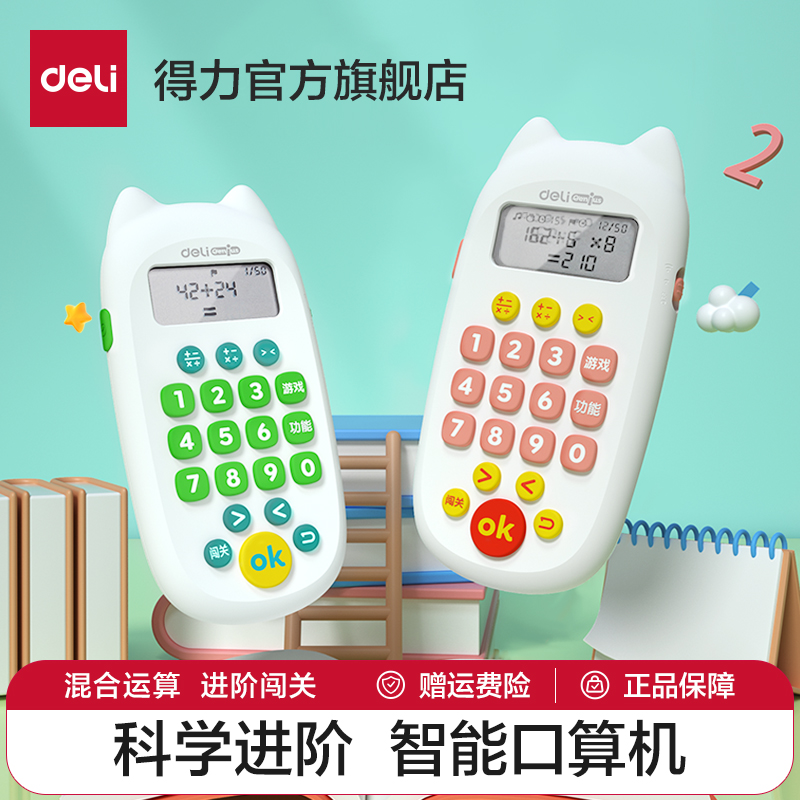如何用口算机锻炼孩子的思维敏捷性
电脑高手
2024-10-07 16:46:20
0次
如何用口算机锻炼孩子的思维敏捷性
口算机不仅是一种工具,还是培养孩子思维能力的有力武器。利用口算机进行学习不仅可以提升孩子的计算能力,同时还可以在无形中增强他们的思维敏捷性。以下是几种方法,帮助您用口算机锻炼孩子的思维敏捷性。
一、设置趣味挑战
通过口算机设置不同难度的计算题目,为孩子创造一个有趣的挑战环境。在挑战过程中,孩子需要快速思考并做出反应,这样可以有效锻炼他们的思维速度和灵活性。
二、鼓励孩子竞争
让孩子与自己设定的小目标进行竞争,例如在规定时间内完成一定数量的题目。这不仅能激发他们的斗志,还可以在不断尝试和挑战中提升思维敏捷性。
三、多样化的题目类型
使用口算机进行各种不同类型的计算题目,如加减乘除、四则混合运算等。这有助于拓宽孩子的知识面,并提高他们在面对复杂问题时思维的灵活性和快速性。
四、利用图形辅助理解
借助口算机上的图形和图片来帮助孩子理解题目。这样不仅可以帮助他们更直观地理解题目,还可以锻炼他们的空间想象力和逻辑思维。
五、鼓励自主学习
引导孩子主动使用口算机进行学习和练习,让他们在自我探索的过程中发现问题并解决问题。这有助于培养孩子的独立思考能力和自主学习的习惯。
六、定期回顾与总结
定期与孩子一起回顾和总结使用口算机的经验,鼓励他们分享自己的心得和感受。这不仅可以增强亲子关系,还可以帮助孩子更好地理解和掌握所学知识。
翻译成英文:
How to Use an Arithmetic Calculator to Enhance Children's Mental Agility
The arithmetic calculator is not just a tool but a powerful weapon to cultivate children's thinking abilities. Utilizing the arithmetic calculator for learning can not only enhance their calculation skills but also indirectly improve their mental agility. Here are several methods to help you use the arithmetic calculator to exercise your child's mental agility. First, set fun challenges. Use the arithmetic calculator to set calculation questions of different difficulties, creating an interesting challenge environment for children. In the process of challenging, children need to think quickly and make reactions, which can effectively exercise their thinking speed and flexibility. Second, encourage competition. Encourage children to compete with their own small goals, such as completing a certain number of questions within a specified time. This can not only stimulate their fighting spirit but also improve their mental agility in continuous attempts and challenges. Third, diversify question types. Use the arithmetic calculator to conduct various types of calculation questions, such as addition, subtraction, multiplication, division, and mixed operations. This helps broaden children's knowledge and improves their flexibility and speed in thinking when facing complex problems. Fourth, use graphics to aid understanding. Use the graphics and images on the arithmetic calculator to help children understand the questions. This not only helps them understand the questions more intuitively but also exercises their spatial imagination and logical thinking. Fifth, encourage independent learning. Guide children to actively use the arithmetic calculator for learning and practice, allowing them to discover and solve problems in self-exploration. This helps cultivate children's independent thinking ability and habits of independent learning. Sixth, conduct regular reviews and summaries. Regularly review and summarize the experience of using the arithmetic calculator with your child, encouraging them to share their experiences and feelings. This can enhance parent-child relationships and help children better understand and master the knowledge they have learned.相关内容
热门资讯
儿童学习必备:多功能口算机使用...
本文介绍儿童学习必备的多功能口算机使用指南,包括启动与界面认识、基础口算练习、自定义题目与模式、计时...
学习路上,我们伴你而行——口算...
口算机是提高计算速度和准确性的工具,本文介绍了其基本认识、使用前的准备、操作步骤、技巧及注意事项。通...
口算机——你数学学习的得力助手
口算机是数学学习的得力助手,具有快速准确、操作简便等优势。它能辅助记忆数学公式,提高学习效率。在数学...
创新学习用品:口算机功能全面解...
本文详细解析了口算机的功能,包括基本计算、智能学习、互动学习及附加功能。口算机不仅可进行数学运算,还...
口算机——孩子的数学学习小助手
数字化时代下,口算机作为儿童数学学习小助手,集互动教学、个性化学习等特点于一身,可帮助孩子巩固基础、...
学习神器大揭秘:多功能口算机与...
多功能口算机:高效学习助手,快速计算,多种学习模式,个性化定制,智能纠错,助力学习旅程。可提升效率,...
口算机使用技巧:提升学习效率的...
本文介绍了使用口算机提升学习效率的技巧,包括熟悉基本操作、制定练习计划、多样化练习题目、注意错误和与...
学习必备工具:精选的几种口算机...
本文介绍了三款精选口算机产品,包括小明口算机、智慧星口算机和数学小能手口算机,它们分别适合不同年龄段...
学习新助手——多功能口算机的选...
本文提供了多功能口算机的选购指南,包括明确需求、功能特点、品牌与价格、硬件配置及售后服务等,帮助您在...
选购指南:最适合孩子的口算机学...
选购指南:为孩子选择最适合的口算机学习工具,需考虑年龄阶段、功能特点、品牌质量及价格等因素。知名品牌...

